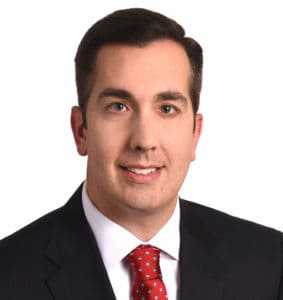
Cash Flow Strategies for Businesses to Maximize PPP Loan Forgiveness
Disclaimer: This information was correct at the time of publication; however, new guidance from government agencies may be issued at any time, causing some or all of this information to change. Please visit our COVID-19 Business Strategy Hub for the latest news and ensure you are subscribed here to receive email alerts as they are released. We are working diligently to provide the most current information as it becomes available under our COVID-19 Actionable Insights For Businesses Series.
As the COVID-19 pandemic continues to bring uncertainty to the economic landscape, businesses are feeling the financial impact. To help during challenging times, many companies have applied for and received funds from the Small Business Administration (SBA) 7(a) loans that were rolled out as part of the Coronavirus Aid, Relief, and Economic Security (CARES) Act Paycheck Protection Program (PPP). These businesses are now tasked with managing PPP loan funds to maximize loan forgiveness. Implementing cash flow strategies for PPP loan funds is essential in setting companies up for a faster recovery.
In an effort to assist companies during these uncertain times, Moore Colson is providing the following cash flow planning recommendations to help maximize your PPP Loan forgiveness amount:
- Until further guidance is issued by the SBA regarding the definition of “incurred and paid,” ensure that you pay all allowable expenses incurred during your 8-week forgiveness period. For example, since your 8-week period begins on the date your PPP loan is funded, ensure the payroll for the 8 weeks after the funding date is paid within those 8 weeks. This means you may need to alter your payroll cycles or run a special payroll toward the end of the 8-week period.
- Ensure that at least 75% of your allowable expenses relate to payroll costs (salaries, wages, health care benefits, retirement benefits, state and local unemployment taxes) and no more than 25% relate to non-payroll expenses, including interest on debt, rent and utilities. All of your non-payroll expenses needed to be contractually in place prior to February 15, 2020. Be sure to retain documentation of payments and invoices to support these actions.
- Create a weekly cash flow spreadsheet to track and project your allowable expenses. Review this cash flow model and your projected forgiveness calculation on a weekly basis. Dedicate someone in your organization as the point person to keep track of all the items associated with the use of your PPP loan.
- Plan out your workforce strategy to maximize PPP loan forgiveness. Continue to monitor and adjust this strategy weekly, or as often as needed. If you have incurred employee turnover, reduced hours, salary reductions or furloughs, keep in mind that reductions in your average FTEs, and/or pay reductions in excess of 25% of your Q1 2020 pay rates, could result is some of your PPP loan not being forgiven. However, you may be able to preserve your PPP loan forgiveness by taking certain actions to rehire and restore pay rates by June 30, 2020.
- If you are considering talking with lenders to defer principal payments for a period of time, you may still want to pay interest on these loans during your 8-week forgiveness period as it is an allowable cost for your PPP loan.
- Avoid making distributions or dividends to owners during the 8-week period.
- Finally, any amount of your PPP loan that is not forgiven will be repaid over a 2-year period at a 1% interest rate. This timeframe is actually 18 months when factoring in the 6-month payment deferral period. Note that the 2-year period starts the day your loan is funded.
Additional Cash Flow Strategies to Consider:
If you are looking for strategies to manage cash flow for your business outside of your PPP loan, there are several areas where you can potentially make an impact. Consider the following strategies:
- Explore deferring loan payments or paying interest only on existing debt with lenders (outside the 8-week PPP loan forgiveness period).
- Explore deferring rent and lease payments (outside the 8-week PPP loan forgiveness period).
- Look to defer major planned projects such as repairs, systems upgrades and training.
- Consider rebates and reductions to insurance premiums due to reduced business volume.
- Analyze inventory turns and needs.
- Be strategic with respect to vendor payments.
- Analyze strategies for expenses such as freight and transportation.
- Assess your need to make corporate income tax payments and/or distributions to owners for income taxes based on your year-to-date net income or loss.
- Take advantage of opportunities to draw down any available line of credit; consider the need for alternative funding vehicles, if necessary.
Cash flow planning will continue to prove valuable for companies in the wake of COVID-19. If you need assistance creating a cash flow plan to help manage your PPP loan funds or your business in general, our team is available to help. To learn more, visit the COVID-19 Business Services section of our website or contact us. Also, be sure to subscribe here to get our news and alerts as they are released as we are committed to keeping you updated on how to navigate financial challenges associated with the COVID-19 pandemic.

Bert Mills, CPA, is the Managing Partner at Moore Colson. In his role, Bert sets the vision and mission of the Firm and works closely with the Firm's leadership to drive and implement strategies.

Chris Arnone, CPA, is a Partner and Business Assurance Practice Leader at Moore Colson. Chris has over 20 years of experience providing audit, accounting and consulting services for companies in the transportation, manufacturing, distribution, staffing, private equity and venture capital industries.

Andy Starnes, CPA, is a Partner and Tax Services Practice Leader Moore Colson. Andy’s specialties include corporate tax compliance and planning, business consulting and multi-generational planning with a focus on the construction, professional services and staffing industries.
